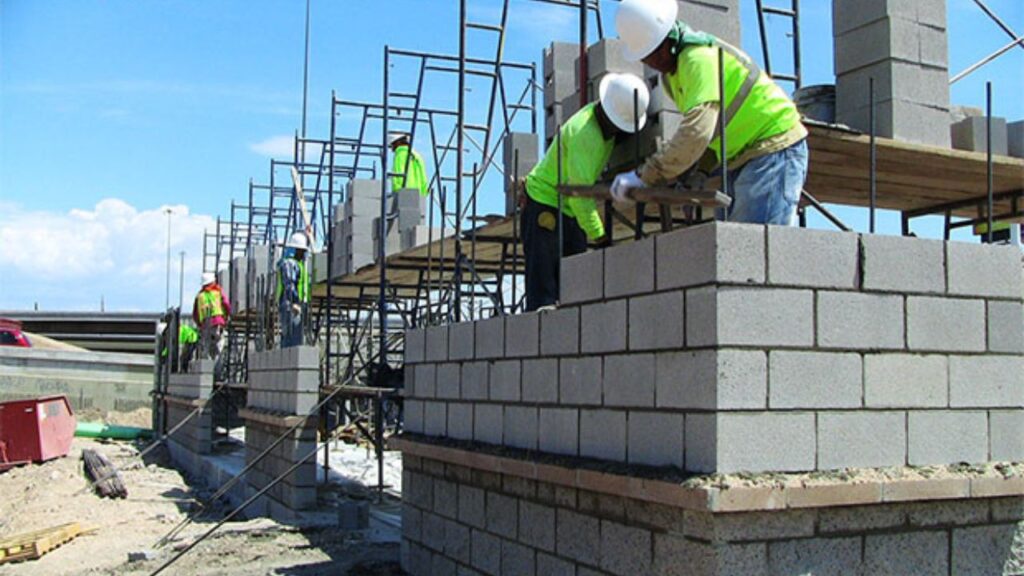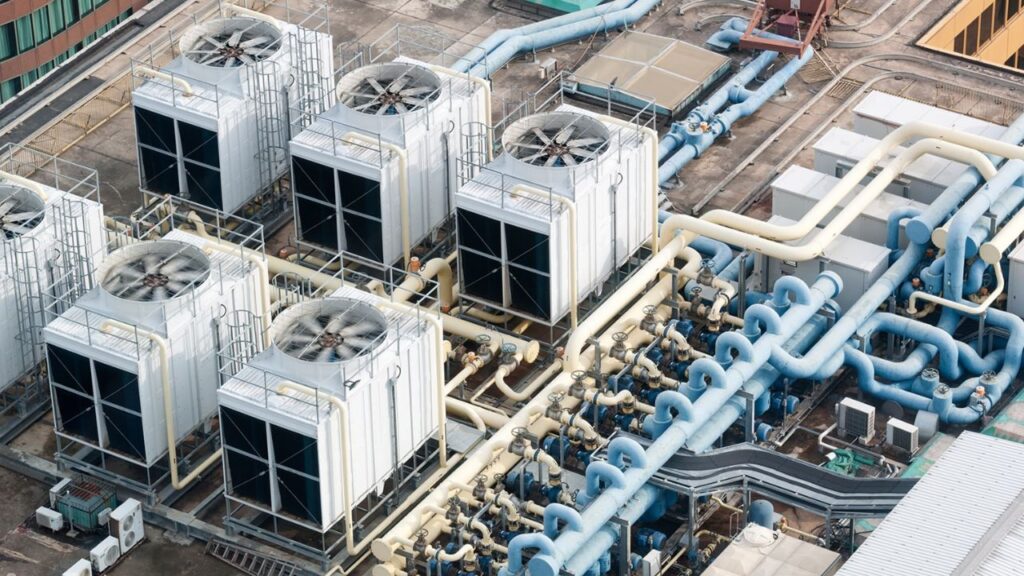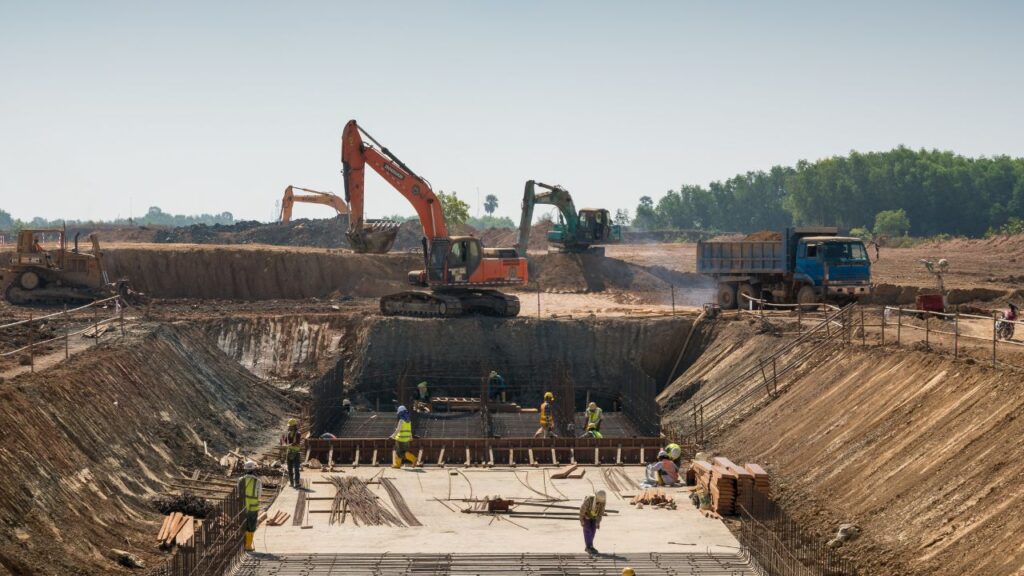Using a cost-per-square-foot metric provides a quick reference point for estimations, helping stakeholders understand ballpark figures before diving into detailed calculations. In Miami Beach, baseline electrical costs commonly fall between $4 and $12 per square foot, with luxury or specialized projects commanding higher rates due to upgraded materials, complex wiring schemes, and advanced technologies.

We Work for All Construction Trades
Construction trades encompass a variety of specialized roles, each critical to the successful completion of a project. Skilled tradespeople not only ensure the work is done right but also enhance safety, efficiency, and compliance with local building codes. From the initial groundwork to the final touches, every step requires expertise from dedicated professionals.
Average Electrical Costs in Miami Beach
Project Type | Average Cost Range |
Basic Home Rewiring | $3,000 – $8,000 |
New Home Build | $10,000 – $30,000 |
Commercial Build-Out | $20,000 – $100,000+ |
Multi-Family Units | $20,000 – $150,000+ |
Lighting Upgrades | $2,000 – $10,000+ |
Electrical Cost by Project Type
Residential Electrical Installations
Residential electrical projects focus on creating safe, efficient, and user-friendly systems to power everyday appliances, lighting, and devices. The costs for basic installations typically range from $4 to $8 per square foot, varying with the home’s size, layout, and wiring complexity. A standard installation might include basic outlets, light fixtures, and breaker panels. However, larger or more customized homes often feature additional elements like recessed lighting, outdoor electrical setups, or advanced security systems, which can push costs higher. Luxury residences with integrated smart home systems—such as automated lighting, energy monitoring, or voice-activated controls—can significantly increase expenses due to the advanced technology and skilled labor required.
Commercial Electrical Installations
Commercial buildings, such as offices, retail spaces, and restaurants, require electrical systems tailored to specific business needs. These systems often include features like high-capacity circuits for heavy equipment, emergency lighting, and advanced security and surveillance setups. Costs generally range from $6 to $12 per square foot, influenced by building size, electrical load requirements, and local code compliance. In Miami Beach, for example, commercial installations frequently involve additional considerations such as compliance with hurricane safety standards and energy-efficient systems. Many businesses also invest in automation technologies, such as programmable lighting or climate control systems, which enhance operational efficiency but add to the initial cost.
- Residential Electrical Installation
- Commercial Electrical Installation
- Electrical Maintenance and Repair
- Outdoor and Infrastructure Electrical Work
- Office Wiring and Electrical Systems
- Fire Alarm and Emergency Lighting Systems
Industrial and Specialty Projects
Industrial facilities and specialty projects, such as laboratories, manufacturing plants, or data centers, have the most demanding electrical requirements. These projects often include high-capacity power distribution systems to run heavy machinery, precision cooling systems for sensitive equipment, and backup generators for uninterrupted operations. Costs for such installations typically exceed $10 per square foot, reflecting the need for specialized materials like industrial-grade wiring and panels. Additionally, these projects often require redundant systems for reliability and safety, as well as technicians with specialized expertise. For example, a data center might incorporate advanced surge protection, battery storage systems, and highly efficient cooling technologies, all of which contribute to the higher price tag.
Get Acquainted with Estimation
Maximize Profits: Budgeting Hacks for Big Construction Projects
Construction Cost Estimator | Cost Estimating Service |
Hourly Rates of Electricians by Experience Level
Electricians charge different hourly rates based on their skill level and experience. Here’s a breakdown of the average costs associated with each level:

Electrician Grade | Average Hourly Rate |
Apprentice Electrician | $60 – $80 |
Journeyman Electrician | $70 – $100 |
Master Electrician | $100 – $140 |
Light Switch Cost by Type
The cost of light switches ranges from $5 to $55, depending on the type of switch you choose. While picking a light switch may seem simple, there are several options to consider based on your needs.
For basic functionality, toggle switches are a reliable and budget-friendly choice. If you’re looking to create a specific mood or adjust lighting levels, dimmer switches are a great option, though they cost a bit more due to their added features. At the higher end of the price range, smart switches offer advanced control, making them perfect for those who want to manage their lighting remotely or integrate it with a smart home system.


Here’s a breakdown of the average costs by type:
Switch Type | Cost per Unit (Material Only) |
Toggle | $5 – $19 |
Dimmer | $15 – $30 |
Smart | $30 – $55 |
Electrical Outlet Prices by Type
Electrical outlets come in many types, each designed for specific needs and appliances. Prices typically range from $1 to $80, depending on the type and features. Choosing the wrong type of outlet can cause serious issues, such as appliance damage, fire hazards, or voided warranties. Some outlets also have different prong configurations, so it’s important to match them with the plugs of your devices.

Here’s a list of common outlet types and their average material costs:
Type | Average Cost (Materials Only) |
Standard | $3 – $8 |
Tamper-Resistant | $3 – $9 |
Duplex | $3 – $25 |
Floor | $4 – $60 |
Coax | $5 – $9 |
Combination | $9 – $35 |
Heavy-Duty | $13 – $25 |
Grounded (GFCI) | $15 – $25 |
LED | $14 – $36 |
Recessed | $15 – $70 |
Rotating | $15 – $26 |
AFCI | $25 – $35 |
USB | $25 – $45 |
Smart | $25 – $85 |
Cost to Upgrade an Electrical Panel
Many older homes have electrical panels that struggle to meet modern energy needs. If you notice flickering lights or your new appliances aren’t performing as they should, it could be a sign that your panel is too small and needs an upgrade. Upgrading from an 80- or 100-amp panel to a 150-amp panel provides room for additional power usage. Moving to a 200-amp panel is even better for supporting larger appliances, home additions, or a garage without overloading your system.

Here’s an idea of what it might cost to upgrade your electrical panel:
Upgrade | Average Cost (Including Labor) |
To 100 Amps | $1,100 – $1,650 |
To 150 Amps | $1,430 – $1,980 |
To 200 Amps | $1,650 – $3,850 |
To 300 Amps | $2,200 – $4,400 |
To 400 Amps | $11,000 – $16,500 |
Electrical Costs by Building Complexity
Single-Story Homes
Wiring a single-story home is usually straightforward, with fewer vertical runs and a simpler overall layout compared to larger or more complex structures. The cost for electrical work in single-story homes generally falls between $4 and $7 per square foot, influenced by the number of circuits, the types of light fixtures, and the quality of components chosen. Homes with basic needs, like standard outlets and fixtures, will fall on the lower end of the spectrum, while those incorporating modern features like smart home systems or high-efficiency LED lighting may see slightly higher costs. Additional factors, such as local labor rates and regional code requirements, can also affect the final expense.
Multi-Story Residential Buildings
Electrical work for multi-story homes, condominiums, or townhouses involves more intricate planning and installation compared to single-story homes. Vertical wiring, additional distribution panels, and careful placement of conduits for seamless power flow between floors increase the complexity. Costs for these projects range between $5 and $9 per square foot, with the inclusion of features like smart lighting systems, elevators, or energy-efficient solutions pushing the cost even higher. The planning phase is critical in these buildings to ensure compliance with local safety codes and to account for future scalability, making skilled electricians essential for such projects.
Multi-Unit Apartments and Condominiums
Multi-unit dwellings like apartments and condominiums demand extensive coordination to ensure each unit has its dedicated power supply while adhering to building-wide electrical codes. Load calculations must be precise, and metering for individual units must be integrated seamlessly. Electrical costs typically range from $6 to $10 per square foot, depending on the building’s complexity. Shared areas, such as hallways, lobbies, and parking garages, require additional considerations for lighting, emergency systems, and safety features like fire alarms. High-quality lighting for common areas and advanced systems like keycard-controlled access or security cameras can add significant costs.
Electrical System Components and Their Costs
Panels, Breakers, and Distribution Boards
Main panels and sub-panels are crucial for distributing electricity throughout a building. A standard panel can cost between $1,500 and $5,000, with price variations depending on capacity, brand, and specific features like surge protection or energy monitoring capabilities. Larger homes or buildings may require multiple panels to accommodate higher electrical loads, increasing costs further. Advanced panels with smart features, such as load balancing or remote access via mobile apps, can also add to the expense but provide enhanced convenience and energy efficiency.
Win More Projects With Us
Wiring and Cabling
The cost of wiring is heavily influenced by the type of material used and the complexity of the installation. For instance, copper wiring is more expensive than aluminum but offers superior conductivity and durability. A typical single-family home might spend $2,000 to $10,000 on wiring, depending on the layout and specific electrical needs. Commercial or larger-scale residential projects often require specialty cables, such as those designed for high-voltage systems or weather resistance, which can push the cost even higher. Properly installed wiring is essential for both safety and performance, making it a critical component of any electrical system.
Lighting Fixtures and Controls
Lighting costs vary widely based on the style, type, and control system used. Basic lighting packages for a small home can start at $1,000 to $3,000, while homes or buildings opting for custom fixtures, recessed LEDs, or advanced lighting controls can spend $5,000 to $15,000 or more. High-end systems may include features like dimming, color-changing LEDs, or integration with smart home platforms, adding convenience and aesthetic value but also raising the price. Commercial spaces often require robust lighting solutions for safety and functionality, further increasing costs.
Outlets, Switches, and Receptacles
While individual outlets and switches are relatively affordable at $2 to $5 per unit, the overall number required can add up quickly, especially in larger homes or multi-unit buildings. For a medium-sized home, total costs can range from $1,000 to $3,000, depending on the number of rooms and specific electrical needs. Specialty outlets, such as USB-integrated or tamper-resistant ones, may cost more but provide additional functionality and safety. Proper placement of outlets and switches is key to ensuring a home’s electrical system is both functional and convenient.
Backup Power Systems and Generators
Backup power systems are increasingly popular in areas prone to power outages or extreme weather conditions. A basic backup generator can cost around $3,000, while larger or more advanced systems designed to power an entire home or building can exceed $10,000. Fuel type—such as gas, propane, or solar—also plays a role in determining costs. Many homeowners and businesses consider these systems essential for ensuring continuity and protecting sensitive electronics during outages. Advanced setups may include automatic transfer switches and noise reduction features, further increasing the price but offering significant peace of mind.
Factors Influencing Electrical Costs
Scope of the Electrical Project
The size and complexity of an electrical project play a major role in determining the overall cost. For instance, adding a few circuits to a small home renovation is far less expensive than installing an entire electrical infrastructure in a multi-story commercial building. Elements like the number of circuits, fixtures, and specialized systems—such as security or automation—are key cost drivers. A simple residential project might require basic wiring and outlets, while a large-scale commercial installation might involve high-capacity systems, advanced safety features, and future-proofing considerations.
Materials and Equipment Quality
The choice of materials and equipment affects both the upfront cost and long-term performance of an electrical system. Investing in high-quality, durable materials can increase initial expenses but often saves money on repairs and replacements later. In Miami Beach, where humidity and salt air pose unique challenges, selecting corrosion-resistant wiring, robust fixtures, and premium electrical panels is particularly important. These materials not only withstand the local climate but also enhance the safety and longevity of the system, making them a worthwhile investment for both residential and commercial properties.
Labor Rates and Skill Level
Labor costs are a significant portion of any electrical project, and they vary depending on the contractor’s expertise, certifications, and the complexity of the work. In Miami Beach, hiring a licensed, insured, and experienced electrician may come with higher hourly rates, but the benefits are substantial. Skilled professionals are more likely to complete the job efficiently, reduce the risk of costly mistakes, and ensure compliance with local regulations. This not only saves money in the long run but also provides peace of mind knowing that the work is done safely and to code.
Code Compliance and Permits
Adhering to the Florida Building Code and Miami Beach’s specific regulations is essential for any electrical project. Compliance ensures the system operates safely and legally, avoiding potential fines or legal issues. The cost of permits and inspections typically ranges from $100 to $600, depending on the project’s size and complexity. Skipping this step can lead to expensive rework or delays if the project fails an inspection. Ensuring that the electrical installation meets code requirements from the outset is a critical part of cost management and project planning.
Energy-Efficient and Smart Home Systems
Adding energy-efficient and smart home systems can impact upfront costs, but they often provide long-term savings. Features like LED lighting, programmable thermostats, or smart outlets may slightly increase installation expenses. However, these systems reduce energy consumption, lower utility bills, and can even increase property value. In Miami Beach, many homeowners and developers are also integrating solar panels, smart home automation, and EV charging stations into their designs, further influencing costs. These upgrades not only align with modern sustainability goals but also cater to growing consumer demand for energy-conscious solutions.
Residential Electrical Systems in Miami Beach
Electrical work in residential properties can vary widely depending on the type of home, its size, and the scope of the project. Single-family homes might require basic wiring, breaker panels, outlets, switches, and lighting installations. Luxury oceanfront condos, on the other hand, often demand high-end fixtures, automation systems, and specialized equipment like EV charging stations. In Miami Beach, residential electrical costs typically range from $3,000 to $15,000 for moderate renovations and $15,000 to $50,000 or more for new construction or major upgrades. Additional features, such as energy-efficient systems or custom lighting designs, can increase these figures further.

Commercial Electrical Installations
Commercial electrical installations are typically more intricate and demand higher investments than residential projects. These systems often include three-phase power setups, advanced lighting controls, backup generators, and network cabling for communication systems. The cost of commercial electrical work in Miami Beach usually ranges from $20,000 to $200,000 or more, depending on the building’s size and electrical requirements. Key considerations include ensuring compliance with stringent building codes, incorporating energy efficiency, and planning for future scalability. For businesses, investing in reliable and scalable systems is essential to support operations, enhance safety, and accommodate growth.
Electrical Permits and Inspection Fees
Securing the required permits and scheduling inspections is essential for ensuring that the electrical system complies with local and state codes. In Miami Beach, permit fees typically range from $100 to $600, depending on the size and scope of the project. Inspection fees vary based on the project’s complexity and the number of site visits required. Adhering to these requirements not only ensures the safety and reliability of the electrical system but also helps prevent costly penalties, delays, or the need for rework. These upfront costs, though seemingly small, play a crucial role in maintaining safety standards and legal compliance for any construction or renovation project.
Estimating Electrical Costs: Tips and Tools
Accurate electrical cost estimates are crucial for effective budgeting. To achieve precision, consider the following:
- Detailed Plans: Ensure you provide comprehensive blueprints and electrical schematics to the estimator. Clear documentation minimizes guesswork and helps identify the exact materials and labor needed.
- Material Specifications: Decide on the brands, quality levels, and types of fixtures early in the planning process. This helps avoid last-minute changes that could disrupt timelines and inflate costs.
- Multiple Bids: Gather quotes from several contractors to compare pricing and ensure you’re getting competitive rates. Evaluating bids also gives insight into the scope of work and potential cost-saving alternatives.
- Professional Estimators: Use tools, software, and expert guidance to validate and refine your estimates. Collaborating with companies like Estimate Florida Consulting adds reliability and accuracy, ensuring all project aspects are accounted for.
Investing time in these steps provides clarity and helps avoid surprises down the line, keeping the project within budget and on schedule.
Why Choose Estimate Florida Consulting for Electrical Cost Estimation?
We understand that contractors and builders in Miami Beach often face tight deadlines and budget constraints. That’s why our team focuses on providing precise and comprehensive electrical cost estimates that help contractors avoid costly overruns. With a proven track record and expertise in Florida’s construction industry, we are the go-to partner for electrical estimation services. Unlike others who might focus on teaching the process of estimation, we take on the responsibility of delivering actionable and ready-to-use estimates.
Benefits of Hiring a Professional Electrical Cost Estimator
Engaging a professional electrical cost estimator offers significant advantages, especially for contractors and developers in Miami Beach. Here’s why working with an expert can make a difference:
1. Accurate Budgeting
One of the biggest benefits of professional cost estimation is accurate budgeting. A professional estimator provides detailed and precise projections, helping you avoid surprise expenses or hidden costs. This ensures you have a clear financial roadmap, allowing for better planning and allocation of resources.
2. Time Savings
Managing a construction project involves juggling many responsibilities. By hiring a professional estimator, you can save valuable time and focus on other critical aspects of your project. The estimator takes care of the complex calculations, freeing you to prioritize tasks like managing teams or securing permits.
3. Reduced Financial Risk
Overspending or underbudgeting can derail a project. Professional estimators mitigate these risks by delivering thorough, well-researched cost breakdowns. With their expertise, you can stay on track financially, avoiding costly mistakes and ensuring your project remains profitable.
4. Better Decision-Making
Having accurate cost estimates enables you to make smarter decisions. From choosing materials and allocating labor to setting realistic project timelines, professional estimates give you the clarity needed to optimize every aspect of your construction process. With the right data in hand, you can streamline operations and achieve your project goals more efficiently.
Download Template For Electrical Project Breakdown
- Materials list updated to the zip code
- Fast delivery
- Data base of general contractors and sub-contractors
- Local estimators

Working with an Electrical Cost Estimator
Partnering with a professional electrical cost estimator in Miami Beach offers numerous advantages for contractors, homeowners, and developers. Estimators are well-versed in local regulations, labor costs, and material availability, enabling them to deliver accurate and realistic cost projections. Their expertise allows stakeholders to navigate complex electrical projects while staying within budget.
Professional estimators also help identify potential cost-saving opportunities, such as alternative materials or efficient labor practices, without compromising quality. Engaging an estimator early in the planning phase ensures a smooth process, fosters transparency, and reduces the likelihood of unexpected expenses. Their insights and recommendations streamline the construction workflow, making them an invaluable resource for any project.
How We Support Contractors in Miami Beach?
We understand that being a contractor can be tough, especially when you’re juggling multiple projects at once. That’s why we offer electrical cost estimation services designed to simplify your work and keep your projects running smoothly. Here’s how we collaborate with contractors like you:
- Understanding Your Project
We start by discussing your project in detail. Whether you’re working on a commercial building, a residential project, or a custom design, we take the time to fully understand the scope, goals, and specific needs of your job. - Gathering Essential Information
Our team collects all the critical details required for an accurate estimate. This includes reviewing architectural plans, material specifications, and ensuring compliance with Miami Beach’s local regulations. We leave no stone unturned to make sure the numbers are right. - Creating Detailed Estimates
With the help of advanced tools and years of industry experience, we generate precise, detailed cost estimates. We consider everything from labor costs to materials and potential unexpected expenses, so you can budget confidently and avoid surprises down the line. - Delivering on Time
We understand that delays can derail a project, so we prioritize delivering your cost estimates promptly. This ensures you have the information you need to meet deadlines and keep your projects on schedule.
Conclusion
Electrical cost estimation is a critical step in ensuring the success of any construction or renovation project in Miami Beach. By understanding the factors that influence expenses, engaging with experienced professionals, and leveraging accurate data, stakeholders can make informed decisions that lead to efficient, compliant, and cost-effective electrical installations. At Estimate Florida Consulting, we specialize in providing precise estimates tailored to your project’s unique requirements, ensuring your investments in electrical infrastructure yield long-term benefits.
Frequently Asked Question
To calculate an electrical estimate, start by determining the total electrical load needed for the project. Break down the cost by category—wiring, fixtures, outlets, labor, and materials. Factor in the square footage of the building, complexity of the electrical plan, and the local rates for labor. Include contingency costs for unexpected issues and adjustments based on the project's size and scope.
To calculate the cost of electricity, multiply the number of kilowatt-hours (kWh) used by the electricity rate (typically listed on your utility bill). The formula is:
Cost of electricity=kWh used×electricity rate per kWh\text{Cost of electricity} = \text{kWh used} \times \text{electricity rate per kWh}Cost of electricity=kWh used×electricity rate per kWh
For example, if you used 500 kWh in a month and your rate is $0.12 per kWh, the cost will be $60.
The cost to wire a 2000 sq ft house depends on factors such as the house layout, the number of electrical outlets, switches, and the complexity of the wiring. On average, residential wiring can cost between $3,000 and $8,000 for a standard 2000 sq ft house. However, this cost can vary based on location, materials, and labor rates.
To calculate wiring costs, first determine the total length of wire required by measuring the perimeter of the home and factoring in the number of outlets, lights, and other fixtures. The cost per foot of wire will depend on the type of wire used (e.g., copper or aluminum). Add labor charges for installation based on the time it takes to complete the wiring. Multiply the total wire length by the unit cost of the wire, then add labor and any additional costs for fixtures and other components.
To quote for electrical work, break down the tasks into materials, labor, and other associated costs. Start by estimating the number of hours it will take to complete the work and the rate for the electrician. Include costs for wires, outlets, switches, electrical panels, and any other equipment. Add a contingency for unexpected issues, and ensure to factor in your profit margin. Make sure the quote reflects local rates and conditions.
To calculate the electrical requirements for your house, consider the total wattage of all appliances and systems. Add up the wattages of all devices that will be running at once. Divide the total wattage by 1000 to convert to kilowatts (kW). Multiply by the hours of usage to get kilowatt-hours (kWh), which can then be used to estimate your electricity costs based on your utility's rate.
To bid electrical work on your house, first assess the scope of the electrical system. Create a detailed list of the work required, such as rewiring, panel upgrades, or fixture installations. Calculate material and labor costs for each aspect. Include overhead, taxes, and a margin for profit. Submit a competitive and comprehensive bid that takes into account local pricing for materials and labor.
The formula for calculating the cost of your electrical use is:
Cost=Power (in kW)×Time (in hours)×Electricity Rate (per kWh)\text{Cost} = \text{Power (in kW)} \times \text{Time (in hours)} \times \text{Electricity Rate (per kWh)}Cost=Power (in kW)×Time (in hours)×Electricity Rate (per kWh)
For example, if you use a 2 kW appliance for 3 hours and your rate is $0.15 per kWh, the cost would be:
2×3×0.15=0.90 dollars2 \times 3 \times 0.15 = 0.90 \, \text{dollars}2×3×0.15=0.90dollars
You can tell if you have 100 or 200 amp service by checking your electrical panel. Look for the main breaker, which will have a rating labeled on it, typically in amps. If the label shows "100" or "200," it indicates the capacity of your electrical service. You can also refer to your utility company or an electrician to verify the service size.
The cost of installing a 100 amp service generally ranges between $1,000 and $2,500, depending on factors such as location, complexity of the installation, and any required upgrades. Additional costs may include the installation of a new meter, grounding, and any upgrades to the panel or wiring.
Comprehensive Trade-Specific Estimates
At Estimate Florida Consulting, we offer detailed cost estimates across all major trades, ensuring no part of your project is overlooked. From the foundation to the finishing touches, our trade-specific estimates provide you with a complete and accurate breakdown of costs for any type of construction project.

Testimonials
What Our Clients Say
We take pride in delivering accurate, timely, and reliable estimates that help contractors and builders win more projects. Our clients consistently praise our attention to detail, fast turnaround times, and the positive impact our estimates have on their businesses.
Estimate Florida Consulting has helped us win more bids with their fast and accurate estimates. We trust them for every project!

Steps to Follow
Our Simple Process to Get Your Estimate
01
Upload Plans
Submit your project plans, blueprints, or relevant documents through our online form or via email.
02
Receive Quotation
We’ll review your project details and send you a quote based on your scope and requirements.
03
Confirmation
Confirm the details and finalize any adjustments to ensure the estimate meets your project needs.
04
Get Estimate
Receive your detailed, trade-specific estimate within 1-2 business days, ready for your project execution.
















